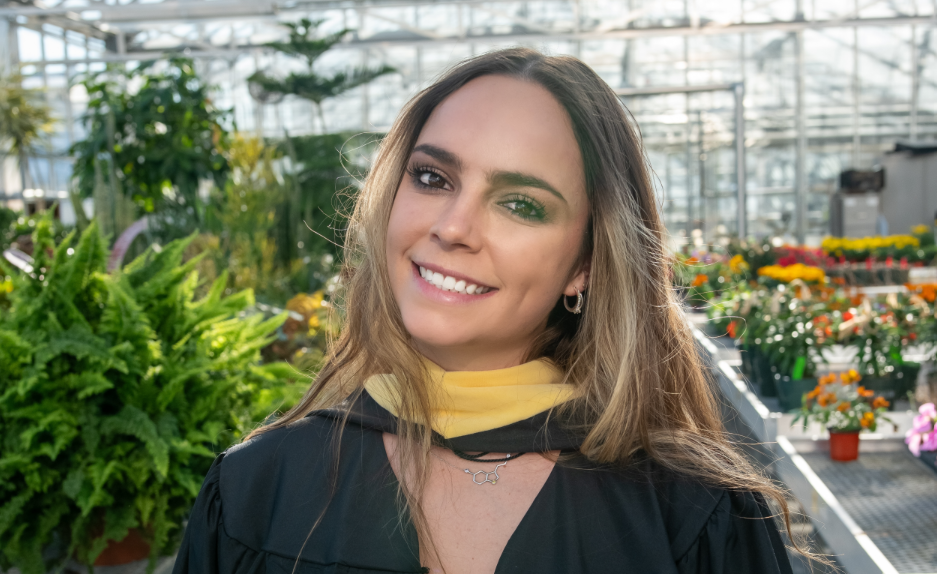
Scholar-Elect Annie Shelton's PhD will look at how to improve agriculture in extreme environments on Earth and in space.
By working in the most extreme conditions, space challenges us to rethink everything we know about growing food. What we learn there can transform agriculture in ways we haven’t yet imagined.
Annie Shelton
Annie Shelton’s research explores how to build resilient food systems in extreme environments that can enable people to thrive both on Earth and in space.
“Space agriculture not only helps provide astronauts with fresh food on long missions, but it helps feed the growing population on Earth,” she says. “In space, crops are grown in highly controlled environments. By figuring out the best way to grow safe, fresh, reliable food in these environments, we can apply this knowledge to make indoor agriculture more robust.”
Beyond providing food and nutrition, Shelton notes that plants play a profound psychological role in space missions. “Research shows that the visual stimuli of plants in humans can reduce stress, improve mood and focus, and create a sense of connection,” she says. “In the isolation of space, caring for something living can be a powerful connection to Earth and what it means to be human. Food is, after all, more than just surviving.”
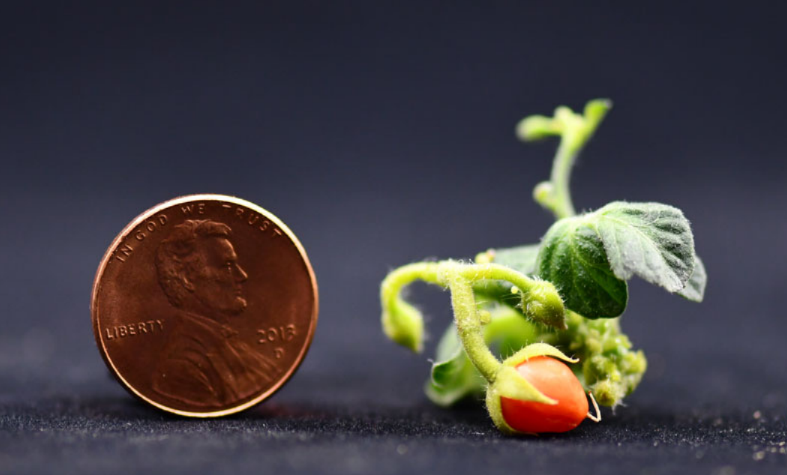 Space, she explains, offers a unique testbed for agriculture, a way to push the boundaries of what’s possible. “By working in the most extreme conditions, space challenges us to rethink everything we know about growing food. What we learn there can transform agriculture in ways we haven’t yet imagined.”
Space, she explains, offers a unique testbed for agriculture, a way to push the boundaries of what’s possible. “By working in the most extreme conditions, space challenges us to rethink everything we know about growing food. What we learn there can transform agriculture in ways we haven’t yet imagined.”
Annie’s PhD, which begins this autumn, will focus on optimising photosynthesis by aligning plants’ internal circadian clocks with controlled lighting in artificial environments. Her research aims to explore how lighting schedules influence plant growth and biological timing, with the goal of designing more efficient and resilient crop systems. The plant’s circadian rhythms control functions like photosynthesis, water use and stress responses, which are typically in sync with natural day-night cycles. In space habitats or indoor farms, lighting conditions often deviate from this rhythm, which can reduce plant performance and resource efficiency.
“Indoor crop production can be expensive due to the cost of lighting,” she says. “If we can align light schedules with plants’ circadian rhythms and understand which patterns they favour and why, we can engineer not just their environments, but the plants themselves to make photosynthesis more efficient.”
By studying how internal clocks respond to external cues, she hopes to develop strategies that boost yields while lowering energy use. As part of her PhD, she will collaborate with the ARC Centre of Excellence in Plants for Space to explore how these insights can be applied beyond Earth, where crops may face extreme conditions, like the Moon’s 14 days of light followed by 14 days of darkness.
Childhood
Annie [2025] grew up in San Francisco and is the first scientist in her family. Her Canadian mother works in communications in the financial services sector, and her British father works in the UK football and farming tech sectors, on issues related to security, safety and crime prevention.
Her interest in science took root in secondary school, where she excelled in an Advanced Placement research course. A competitive athlete in soccer, track and field as well as volleyball, she initially considered a career in sports therapy. For one of her early projects, she studied how and why high school American football players report concussions – a subject she connected with personally, having experienced several herself. This sparked a fascination with the brain and the power of research to address real-world problems.
Annie also took an Advanced Placement course in environmental science, which planted the seeds of her broader interest in biology.
University
Her career began at the University of California, Riverside as a neuroscience major, but her academic trajectory shifted during the COVID-19 pandemic. “I went down a rabbit hole watching documentaries and reading about space agriculture,” she says. “I was fascinated by the idea of growing food in space and how it connects to sustainability on Earth.”
Inspired by films like The Martian and Alien Worlds, she enrolled in courses in Astronomy and Astrobiology, eventually realising that her passion wasn’t in searching for life beyond Earth but in making life possible in space. This growing interest in how plants could support human life in extreme environments led her to pursue a minor in plant biology alongside her neuroscience degree.
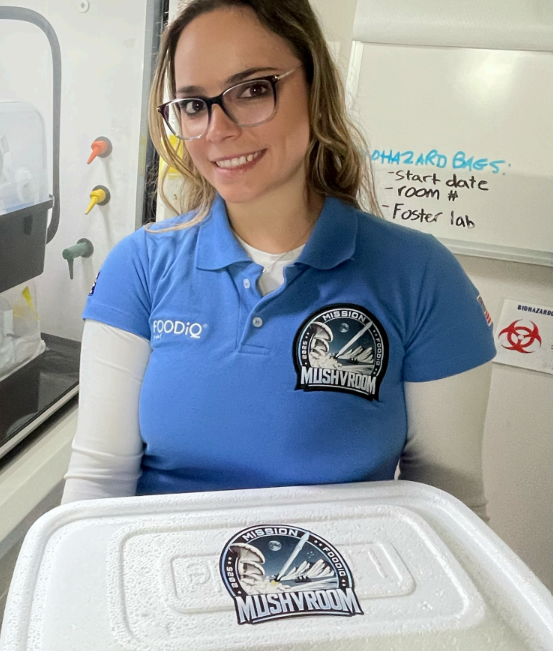 In 2020, motivated by this discovery, Annie joined Dr Robert Jinkerson’s lab, where she progressed from undergraduate intern to Assistant Project Specialist. There, she contributed to the Artificial Photosynthesis project which aimed to grow plants independent of photosynthesis and in the dark. She also led a NASA-awarded project on hydroponic mushroom cultivation worth over $525,000 as part of NASA’s Deep Space Food Challenge.
In 2020, motivated by this discovery, Annie joined Dr Robert Jinkerson’s lab, where she progressed from undergraduate intern to Assistant Project Specialist. There, she contributed to the Artificial Photosynthesis project which aimed to grow plants independent of photosynthesis and in the dark. She also led a NASA-awarded project on hydroponic mushroom cultivation worth over $525,000 as part of NASA’s Deep Space Food Challenge.
Her work demonstrated the ability to grow edible mushrooms in hydroponic conditions using acetate as the sole carbon source for the first time in the literature. In addition, she contributed to the SPACE Tomatoes project, where she developed in vitro and in vivo fruiting methods, as well as callus regeneration systems under mixotrophic and hydroponic conditions.
She also supported preparations for the upcoming flight of SPACE Tomatoes, which are being readied for NASA’s Advanced Plant Habitat as part of the PH-08 payload to the International Space Station.
Beyond the Jinkerson Lab, Annie worked across disciplines on several innovative research projects. In Dr Stephen Kane’s Astrobiology and Planetary Research Laboratory, she developed the Astrobiology Vegetation Index. This model estimates whether plants could survive on Earth-like exoplanets based on climate simulations. She also served as the lab manager for UC Riverside’s Plant Transformation Research Centre, supporting plant biotechnology projects, including plant propagation, cell suspension of citrus and tobacco lines and the SPACE Tomato initiative.
A pivotal moment
In 2022, a pivotal moment came when Annie attended the annual American Society for Gravitational and Space Research (ASGSR) conference. There, she met NASA plant scientists and a member of the Apollo programme, which solidified her desire to pursue space biology. She soon joined the ASGSR student board and now serves as its president, where she leads strategic planning, expands outreach and has increased student engagement by over 50% and student board funding by nearly 800%. Annie has also contributed to NASA’s Growing Beyond Earth project, which connects space plant research to classroom experiments across the country. “Seeing young students get excited about space is one of the most rewarding parts of what I do,” she says.
In early 2023, she became a Visiting Scholar at the Blue Marble Space Institute of Science, where she works on the Space Agriculture Laboratory Analysis Database (SALAD) project – an open-access resource that compiles data on crops grown in space and controlled environments. She has co-led science communication, grant writing and data infrastructure development, including co-managing Watney, a biological research software tool. Her work supports NASA collaborations and curriculum development for space agriculture outreach.
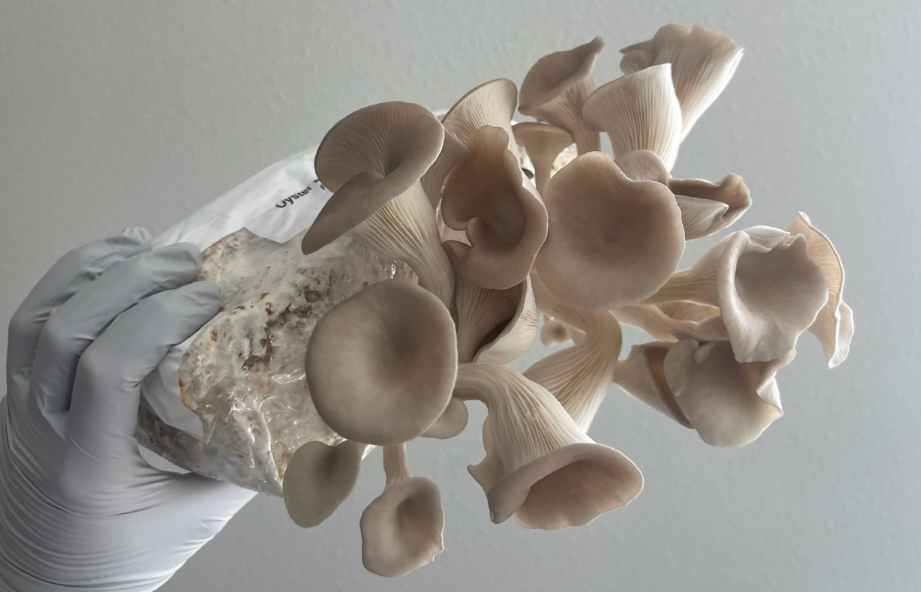 To gain industry experience in large-scale food production, Annie pursued a Professional Master’s in Integrative Plant Science at Cornell University, specialising in Controlled Environment Agriculture. Her thesis, developed in collaboration with NASA and the USDA, focused on advancing dwarf plum trees as a potential space crop. She developed protocols for hydroponic tree cultivation and advanced far-red lighting strategies to control growth and fruiting. This work helped renew NASA’s interest in plums for long-duration missions and connected space biology to human health by exploring how plums may help mitigate bone loss in astronauts.
To gain industry experience in large-scale food production, Annie pursued a Professional Master’s in Integrative Plant Science at Cornell University, specialising in Controlled Environment Agriculture. Her thesis, developed in collaboration with NASA and the USDA, focused on advancing dwarf plum trees as a potential space crop. She developed protocols for hydroponic tree cultivation and advanced far-red lighting strategies to control growth and fruiting. This work helped renew NASA’s interest in plums for long-duration missions and connected space biology to human health by exploring how plums may help mitigate bone loss in astronauts.
Internship
After completing her master’s, Annie joined the Space Crop Production Team at NASA Kennedy Space Centre as a two-time intern and later as a contracted scientist. At KSC, she led horticultural validation studies for the Artemis III Lunar Effects on Agricultural Flora (LEAF) mission, which will be the first to observe plant growth and photosynthesis on the Moon. #
She also supported nitrogen uptake studies under elevated CO₂ conditions which are relevant to the international space station and contributed to roadmaps for Deep Space Logistics. At NASA, she additionally was the science lead on a novel study on advanced mushroom production. Her personally developed proposal was awarded during an internal competition which led to a formal study and upcoming publication. She currently works as a contracted microbiology scientist at NASA KSC.
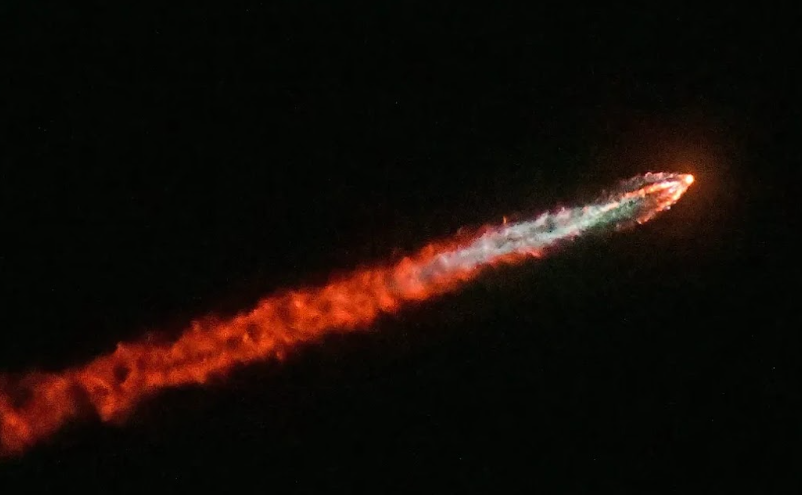 Apart from her work at NASA, Annie is also a Space Crop Specialist with FOODiQ Global, an Australian company leading innovation in space nutrition and sustainable food systems. In this role, she served as the Mission Scientist and Payload Director for Mission MushVroom. Aboard the Fram2 human spaceflight mission, Mission MushVroom tested whether oyster mushrooms can successfully fruit and colonise in microgravity. It is the first to grow mushrooms in space as a crop. Annie says the study represents a breakthrough in space food systems, offering a nutritious, resilient crop for long-duration missions and a model for sustainable, bioregenerative life support.
Apart from her work at NASA, Annie is also a Space Crop Specialist with FOODiQ Global, an Australian company leading innovation in space nutrition and sustainable food systems. In this role, she served as the Mission Scientist and Payload Director for Mission MushVroom. Aboard the Fram2 human spaceflight mission, Mission MushVroom tested whether oyster mushrooms can successfully fruit and colonise in microgravity. It is the first to grow mushrooms in space as a crop. Annie says the study represents a breakthrough in space food systems, offering a nutritious, resilient crop for long-duration missions and a model for sustainable, bioregenerative life support.
Annie had been considering a PhD at the University of Cambridge for some time before she applied. She says her academic and research journey has taught her the importance of following curiosity and taking bold steps. “It’s shown me that if you really want to do something in this world, you can,” she says. “I love doing science that’s not only exciting but also has real applications for the future of life on Earth – and beyond.”












